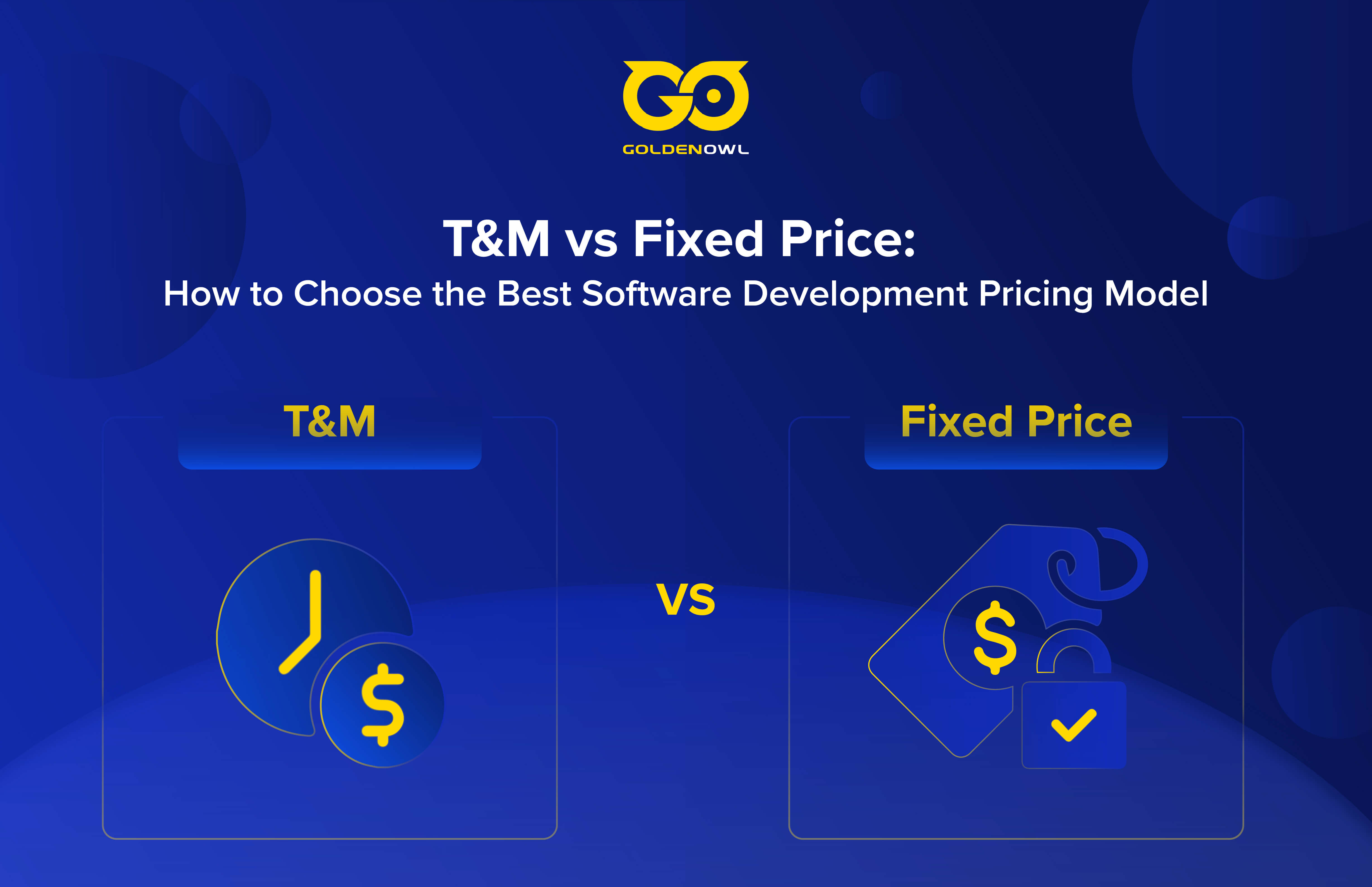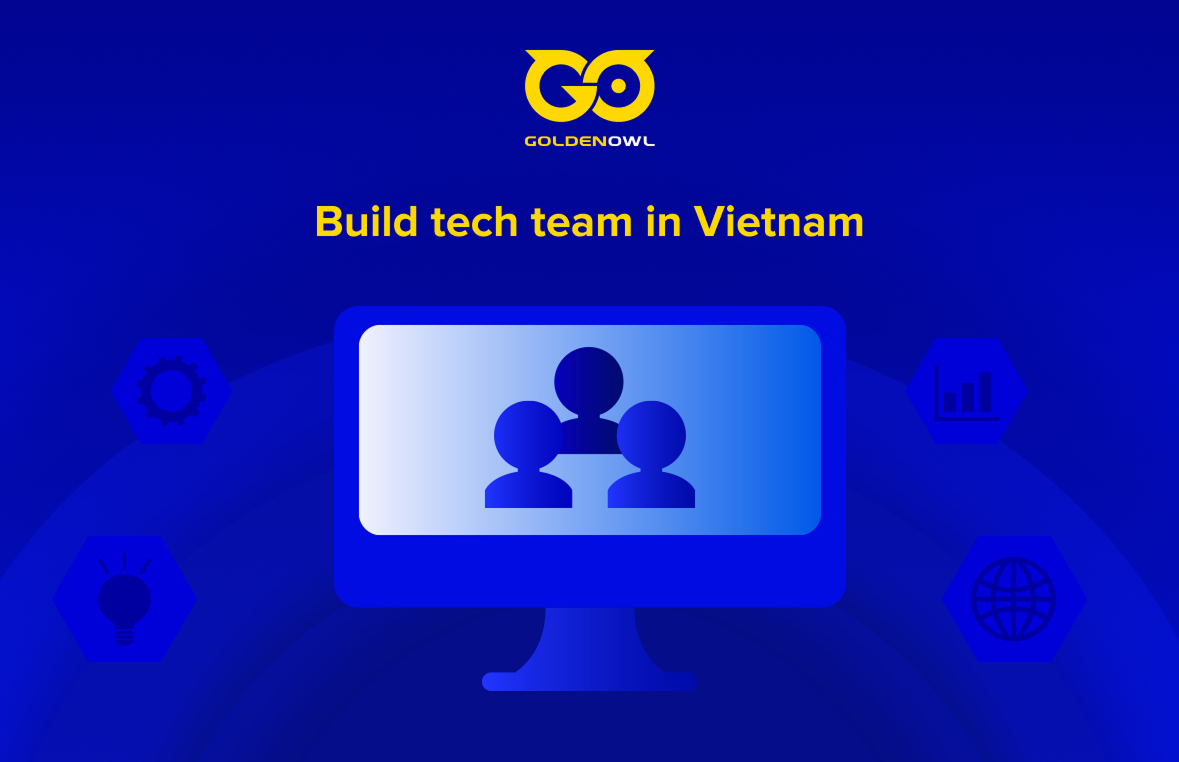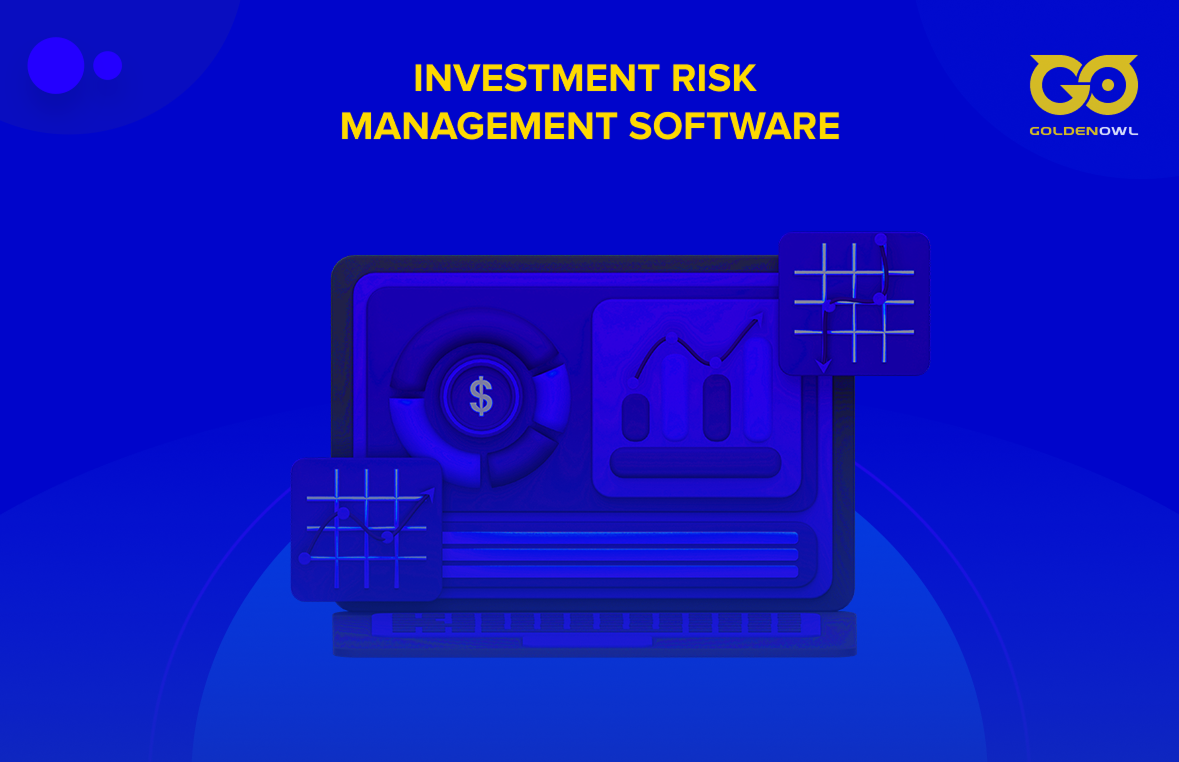Digital transformation explained: Unlock the secrets of technology adoption, process optimization, and customer focus for your business.
In today's rapidly evolving digital landscape, businesses of all sizes are facing increasing pressure to adapt and innovate. This is where the concept of digital transformation comes in. But what exactly is it, and how can it benefit your organization?
How is Digital Transformation Defined?
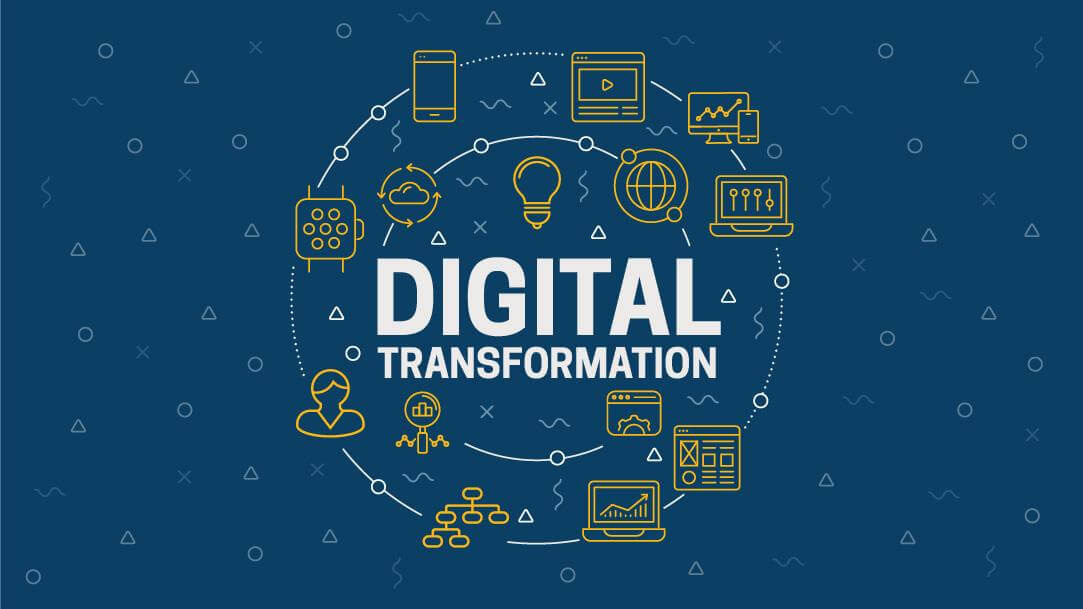
Digital transformation involves much more than simply getting your business online. It's a comprehensive strategy that entails integrating digital technologies throughout all facets of your organization. This includes rethinking how you provide value to customers through digital means, such as creating new digital products or updating existing ones to deliver a more digital experience.
Read more: See how Nike and IKEA transform their business utilizing digital transformation?
Additionally, you can streamline internal processes using digital tools and automation to improve efficiency, decrease costs, and boost accuracy. By leveraging digital channels, you can enhance customer interactions by providing self-service options, personalized marketing, or real-time communication platforms.
Finally, you can rethink your core business model to capitalize on the power of digital technologies. This may entail developing new revenue streams or entirely new methods of conducting business.
Why is Digital Transformation Important?
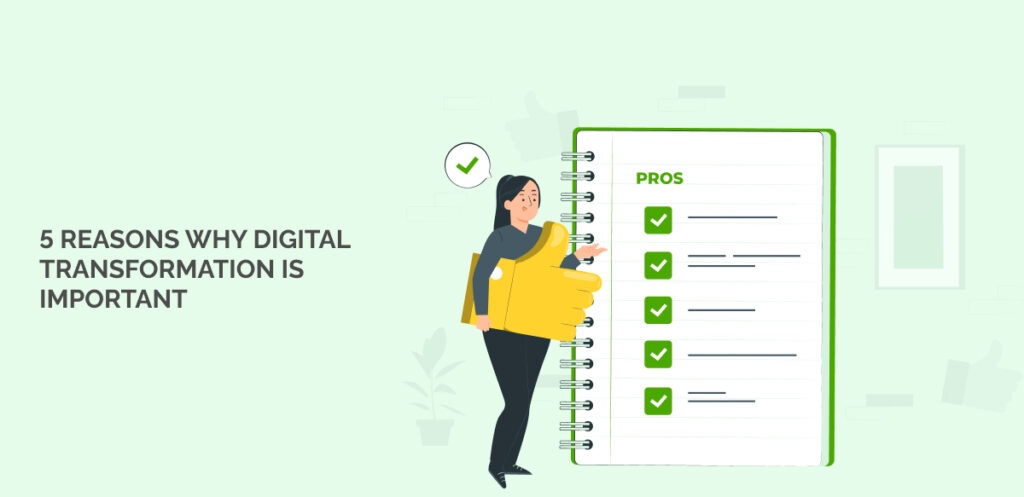
Its benefits are numerous. Here are a few key reasons why you should prioritize it:
- Enhanced customer experience: Digital tools help you better understand your customers, anticipate their needs, and provide them with personalized experiences. This can improve customer satisfaction and loyalty, leading to increased sales and a better reputation.
- Increased efficiency and productivity: Streamlining operations with automation and data analysis can reduce manual tasks, free up employees to focus on higher-value activities, and lead to cost savings, faster time-to-market, and increased profitability.
- Improved decision-making: Insights derived from data can help you make more informed decisions, recognize growth opportunities, and reduce potential risks. Such insights can help you maintain your competitive edge and make better strategic choices.
- Greater innovation: Encouraging experimentation and innovation creates an environment where you can develop new products and services that meet your customers' ever-changing needs. This allows you to stay current and adapt to shifting market conditions.
- Competitive advantage: In today's digital world, businesses that fail to adapt risk falling behind their competitors. By embracing new technologies and leveraging digital tools, you can stay ahead of the curve and remain competitive. A study by MIT found that digitally mature companies are 26% more profitable than their peers.
What are the Goals of Digital Transformation?

The ultimate goal is to create a more efficient, customer-centric, and future-proof business. Here's a breakdown of the key aspects:
Technology Adoption
This involves embracing a wide range of digital tools and technologies, such as cloud computing, artificial intelligence (AI), big data analytics, and the Internet of Things (IoT). These tools can streamline operations, improve data-driven decision-making, and personalize the customer experience.
Process Optimization
Digital transformation is not just about the technology itself but also how you use it to optimize your existing business processes. This could involve automating repetitive tasks, eliminating redundancies, and creating more collaborative workflows.
Customer Focus
At its core, it is all about understanding and meeting your customers' ever-evolving needs. A Salesforce study found that 84% of customers say that the experience a company provides is as important as its products and services.
You can gain deeper insights into customer behavior, preferences, and expectations by leveraging digital tools. This allows you to create more targeted marketing campaigns, develop personalized products and services, and provide exceptional customer service.
Cultural Shift
It is not just a technological overhaul. It's also a cultural shift. You need to foster a culture of innovation, experimentation, and continuous learning to embrace the changes that come with it.
Top Technologies Driving Digital Transformation
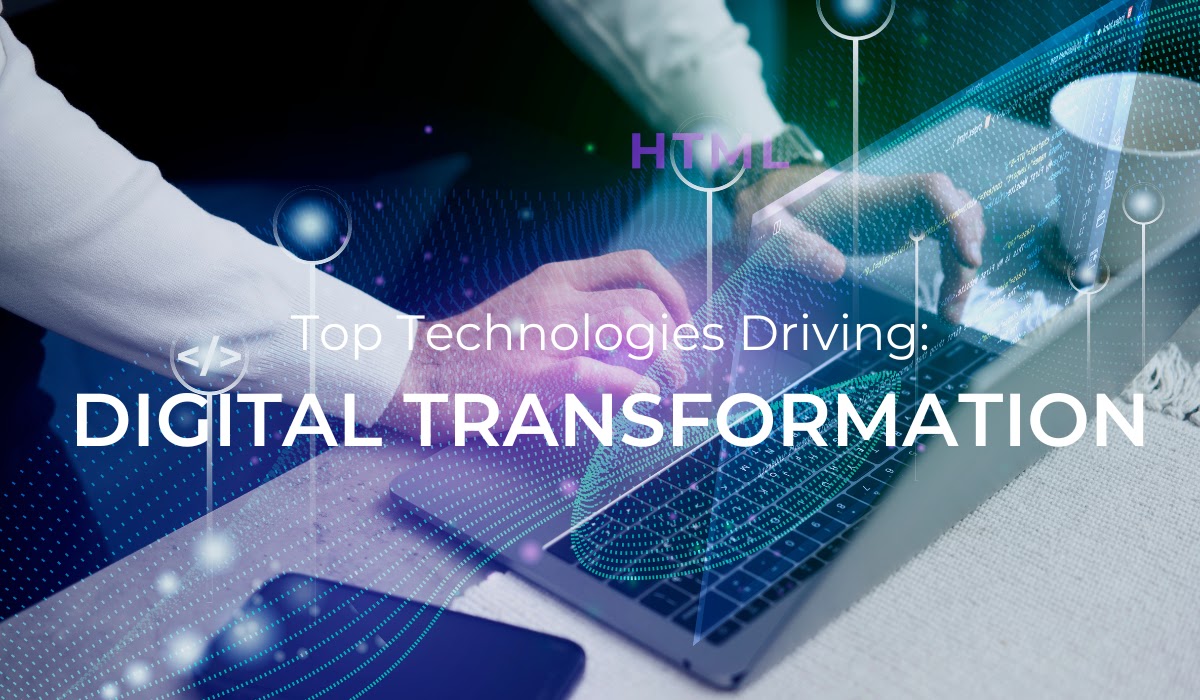
A wide range of digital technologies are fueling the transformation process, including:
- Cloud Computing: This technology has revolutionized businesses' operations by offering them scalability, flexibility, and cost-effectiveness. With cloud-based solutions, you can access your data and applications from anywhere in the world, making it easier to collaborate and work remotely.
- Artificial Intelligence (AI): AI is an incredibly powerful technology that can automate tasks, improve decision-making, and personalize customer experiences. Machine learning algorithms can analyze vast amounts of data to identify patterns and insights to help you make better decisions and improve your processes.
- Big Data and Analytics: Leveraging data insights can help you better understand your operations and customers. Big data technologies can process and analyze large volumes of data quickly and accurately, which in turn provides valuable insights for making informed strategic decisions.
- Internet of Things (IoT): IoT is a technology that connects devices and collects sensor data, allowing real-time monitoring and process optimization. IoT devices can be used to track inventory, monitor production processes, and collect data on customer behavior, among other things.
Which Industries Experience Digital Transformation the Most?

While it is crucial for all businesses, some industries are undergoing more rapid and disruptive change than others. Here are a few examples:
Financial Services
Digital transformation in banking is rapidly taking place as banks, insurance companies, and other financial institutions are embracing new-age technologies like artificial intelligence (AI) and blockchain. By leveraging AI and blockchain, these organizations can offer personalized financial products, automate transactions, and enhance security measures, thereby streamlining their operations and providing better customer services.
Retail
The retail industry is undergoing a significant shift as online shopping continues to grow. Retailers are embracing new technologies to improve their e-commerce platforms, personalize the shopping experience, and seamlessly integrate physical and online channels.
Healthcare
The healthcare industry is leveraging digital technologies to improve patient care, streamline administrative processes, and conduct telemedicine consultations.
Read more: What Is a Digital Transformation Strategy? A Complete Guide
Getting Started with Digital Transformation
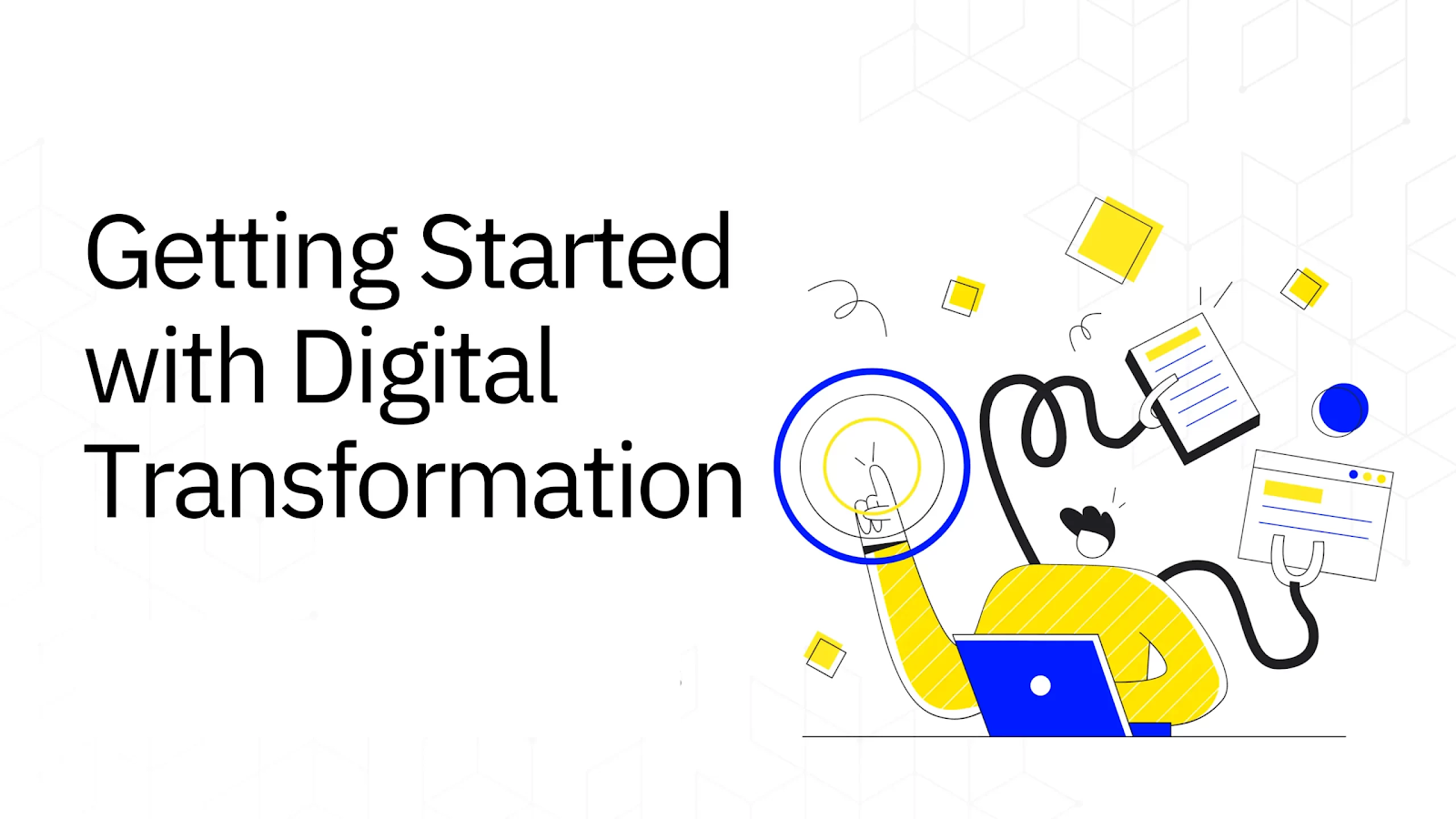
Digital transformation is a journey, not a destination. Here are some tips to get you started:
- Define your goals: What do you hope to achieve? Increased efficiency? Improved customer satisfaction? Or market expansion? Having clear goals will help you choose the right technologies and strategies.
- Assess your current state: Evaluate your existing digital infrastructure, processes, and capabilities. This will help you identify areas for improvement and prioritize your transformation efforts.
- Develop a digital strategy: Create a roadmap that outlines your goals, the technologies you plan to use, and the steps you will take to implement them.
- Embrace a culture of change: requires a shift in mindset. Encourage your employees to embrace new technologies and processes, and provide them with the training and support they need to succeed.
Digital Transformation Consulting Firms and Agencies

Given the complexity of digital transformation, many businesses seek the guidance of consulting firms like Golden Owl. These specialists offer a range of services, including:
- Developing a strategy: Consulting firms can help you assess your current state, identify digital opportunities, and create a roadmap for transformation.
- Implementing digital solutions: Agencies can assist you in selecting and implementing the right digital technologies to achieve your goals.
- Change management: Digital transformation often requires significant cultural shifts within an organization. Consulting firms can help you manage these changes effectively.
Partnering with a digital transformation agency can provide the expertise and resources necessary to navigate this critical journey.
Conclusion
It's important to remember that this is not a one-time event. It's an ongoing journey. You need to develop a clear strategy with defined goals and measurable outcomes. In addition, it would be best to foster a culture of adaptability and continuous learning to keep pace with technological advancements.
By embracing digital transformation, you can unlock new opportunities, gain a competitive edge, and thrive in the digital age.





















